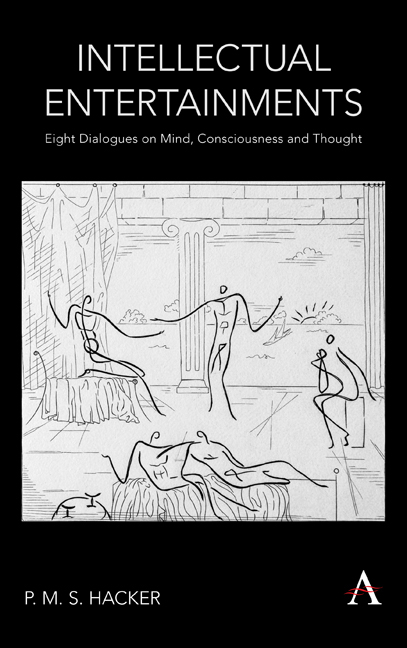Book contents
Summary
The dialogue is one of the oldest forms in which to present philosophical ideas and the lively clash of philosophical disputation. On the one hand, it allows the author, if he so pleases, to hide behind the characters he has created. More importantly, it permits him to present ideas with which he does not agree, with all the commitment and passion that their adherents feel. And it enables him to display how difficult it is to uproot received and deeply tempting ideas. On the other hand, it makes it possible for the audience to follow a lively debate, to hear the different views that have been advanced by various thinkers and to come to their own conclusion. Its primary function, however, is to stimulate thought and discussion among its readers and, if performed as a reading or dramatization, its listeners, by means of an imaginary discussion between protagonists advancing different views.
The following eight dialogues were written, as their title intimates, as intellectual entertainment. They were not written primarily with an academic readership in mind. On the contrary, they were written in order to go over the heads of professional academics and to reach the wider audience of those with an interest and curiosity in matters intellectual. There are, after all, few intelligent people who have not wondered about the nature of the mind and about the relation of the mind to the body, and who have not, from time to time, paused to reflect on the question of whether the mind is the same as the self, or whether the mind is identical with the brain. So the two dialogues on these subjects will, I hope, provide intellectual entertainment, and induce further reflection. In the present intellectual milieu, in which we are bombarded in press, radio and television with over-hasty news from cognitive neuroscience, it is difficult, even for the most thoughtful people, not to succumb to the enchantments of mysteries. For we are assailed by academics – in philosophy, psychology and cognitive neuroscience – eager to persuade us that consciousness is profoundly mysterious, and, moreover, that it is the last barrier to a fully scientific conception of the universe.
- Type
- Chapter
- Information
- Intellectual EntertainmentsEight Dialogues on Mind, Consciousness and Thought, pp. ix - xiiPublisher: Anthem PressPrint publication year: 2019



